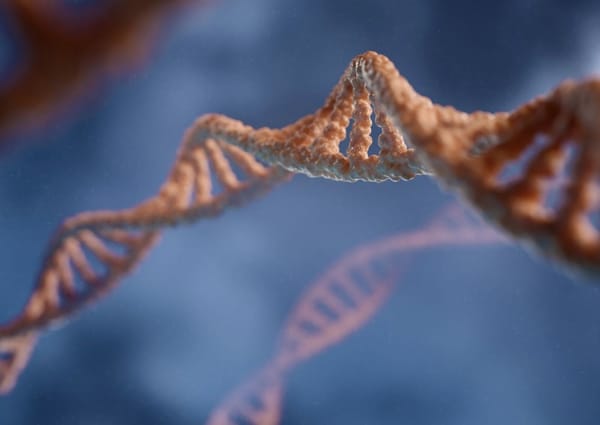DNA-driven diets, which tailor nutrition plans based on an individual's genetic profile, are gaining attention as a potential breakthrough in personalized nutrition. While the concept promises customized dietary recommendations, recent research suggests that genetics may play a smaller role in determining optimal nutrition than previously thought.
Genetic Markers and Nutrient Metabolism
Genetic markers play a crucial role in nutrient metabolism, influencing how individuals process and utilize various foods and nutrients. This complex interplay between genes and nutrition forms the basis of nutrigenomics, a field that explores how genetic variations affect metabolic responses to dietary components.
Numerous genes and their single nucleotide polymorphisms (SNPs) have been identified as influencing the metabolism of specific foods and nutrients. These genetic variations can impact nutrient bioavailability, metabolism, and ultimately, an individual's overall health status[1]. For instance, functional genetic polymorphisms in cytokines and metabolic genes have been linked to susceptibility to developing type 1 diabetes[2].
The genetic variability in biochemical processes is ubiquitous, making every person genetically unique. This genetic individuality is relevant to nutrition and the role of certain nutrients in disease causation[3]. Processes such as absorption, enzyme digestion, biosynthesis, catabolism, transport across cell membranes, uptake by cell receptors, storage, and excretion all vary extensively, and this variation is often known to be genetically determined, at least in part[3].
Research has shown that most chronic diseases influenced by nutritional factors have genetic determinants. Conditions such as high blood pressure, obesity, hyperlipidemia, atherosclerosis, and various cancers appear to aggregate in families for genetic reasons rather than merely because of a common environment[3]. This genetic component means that recommendations to avoid nutrient excesses that predispose to these diseases are unlikely to apply to everyone in the same way[3].
Recent advances in genomics, proteomics, and metabolomics have transformed biomarker studies on nutrient-gene interactions. These high-throughput technologies allow for the measurement and analysis of DNA sequences, RNA transcripts, proteins, and nutrient-metabolic fluxes in a single experiment[2]. This holistic approach enables researchers to measure many regulated genes involved in metabolism, along with their metabolic phenotypes, through functional genomics and metabolic profiling[2].
The integration of data from these nutrient-gene interactions can potentially lead to future individualized dietary recommendations to diminish disease risk[2]. However, it's important to note that while genetics is an important component, it accounts for only a portion of the variation in an individual's overall phenotype and health status[2].
Understanding the genetic determinants of systemic metabolism has been pivotal in uncovering how genetic pathways influence various aspects of health. A recent genome-wide study characterized circulating metabolic biomarkers, identifying 231 likely causal genes with clear biological relevance to associated metabolic traits[5]. This research highlights the complexity of metabolic trait-associated loci, with some regions showing associations with up to 214 different metabolic traits[5].
Despite these advancements, challenges remain in interpreting genetic data for nutritional purposes. The field of nutrigenomics must continue to evolve to better understand the mechanisms of nutrient-dependent interactions at the genetic, molecular, protein synthesis, and metabolic profile levels[4]. This ongoing research is crucial for developing more accurate and effective personalized nutrition strategies based on an individual's genetic profile.
Real-Life Success Stories of DNA-Based Diets
Real-life success stories demonstrate the potential effectiveness of DNA-based diets in helping individuals achieve significant weight reduction and improved health outcomes. These personalized nutrition plans, tailored to an individual's unique genetic makeup, have shown promising results for some people[1].
One key advantage of DNA-based diets is their ability to provide personalized recommendations based on genetic information. This can include specific dietary changes, exercise routines, and lifestyle modifications that align with an individual's genetic predispositions[1]. For example, some people may have genetic variations that affect their ability to metabolize carbohydrates, fats, or proteins. A DNA-based diet can recommend foods that optimize nutrient absorption and utilization for that person's specific genetic profile[4].
Success stories often highlight how DNA testing revealed valuable insights into individual needs and weight loss capabilities. For instance, some individuals may discover they are genetically predisposed to benefit more from a low-carb diet, while others might find greater success with a low-fat or balanced approach[4]. This targeted strategy can make weight management more efficient and sustainable for some people.
It's important to note that while these success stories are encouraging, the scientific evidence supporting DNA-based diets is still evolving. Currently, there is no solid evidence that eating a certain diet based solely on your specific genes will consistently make you slimmer, happier, or healthier[2]. The effectiveness of DNA-based diets can vary greatly between individuals, and factors beyond genetics, such as lifestyle, environment, and adherence to the diet plan, play significant roles in determining outcomes.
For those considering a DNA-based diet, it's crucial to choose a reputable DNA testing provider that specializes in weight management and has a good track record[1]. The DNA test should analyze a wide range of genetic variations related to weight management, metabolism, and nutrition. Additionally, professional interpretation of the results by a healthcare provider who specializes in genetic-based weight management is essential for developing an effective personalized plan[1].
While success stories can be inspiring, it's important to approach DNA-based diets with realistic expectations. The timeline for seeing results can vary significantly from person to person, generally ranging from a few weeks to a few months, depending on adherence to the plan and other lifestyle factors[1]. Consistent monitoring, regular follow-ups, and adjustments based on progress are key components of successful DNA-based diet plans[1].
In conclusion, while real-life success stories suggest potential benefits of DNA-based diets for some individuals, more research is needed to fully understand their effectiveness and applicability across diverse populations. As with any significant dietary change, it's advisable to consult with healthcare professionals before embarking on a DNA-based diet plan.
Challenges in Interpreting Genetic Data for Nutrition
Interpreting genetic data for nutritional purposes presents several significant challenges, reflecting the complexity of gene-diet interactions and the evolving nature of nutrigenomics research.
One major challenge is the complexity of genetic interpretation itself. While genetic testing can reveal predispositions to certain dietary responses, translating this information into practical dietary advice is complicated. The field of nutrigenomics is still in its early stages, with many gaps in both fundamental science and practical application[1]. Gene-diet interactions are intricate, and environmental factors also play a significant role, making it difficult to draw definitive conclusions from genetic data alone[1].
The evolving nature of nutrigenomics research presents another challenge. Traditional research methodologies, such as randomized controlled trials, often fail to predict individual benefits or detriments of dietary interventions due to the wide variability in individual responses[1]. This has led to increased interest in n-of-1 studies, which focus on individual responses to interventions. However, these studies are still experimental and not widely utilized in nutritional research[1].
The reliance on 'big data' in personalized nutrition introduces challenges related to data volume, velocity, variety, and veracity. Structuring and analyzing such vast amounts of complex data is demanding and requires sophisticated computational approaches[1]. This complexity can make it difficult for healthcare professionals to interpret and apply the findings effectively.
Ethical considerations and privacy concerns also pose significant challenges in the context of genetic testing for dietary purposes. The management and protection of genetic data are critical to maintain individual privacy and prevent potential misuse of sensitive information[1]. There are concerns that personalized nutrition interventions might exacerbate health inequalities, as these approaches may be more accessible to or readily adopted by those with greater socioeconomic advantages[1].
The commercialization of personalized nutrition has outpaced regulatory oversight and defined standards, raising questions about the accuracy and scientific validity of these services[1]. This lack of standardization can lead to inconsistent or potentially misleading interpretations of genetic data.
Another challenge lies in the current limitations of genetic knowledge. For example, while we know that a mutation in apolipoprotein E (e4/e4) is found in 14% of the population and is associated with increased risk of Alzheimer's disease, the implications of this information for dietary recommendations are not yet clear[2]. This highlights the gap between identifying genetic variations and translating them into actionable nutritional advice.
The heterogeneity of nutrition responses among individuals further complicates the interpretation of genetic data. Nutrition research often relies on group means to draw conclusions, but this approach can mask significant inter-individual variations in response to dietary interventions[3]. Addressing this heterogeneity requires more sophisticated study designs and statistical approaches that can account for individual variability[3].
Lastly, the challenge of addressing perceived race and ethnicity and associated risk of non-communicable diseases adds another layer of complexity to interpreting genetic data for nutrition[3]. Genetic variations associated with different ancestral backgrounds can influence nutrient metabolism and disease risk, but these associations must be carefully interpreted to avoid reinforcing harmful stereotypes or oversimplifying complex genetic interactions.
In conclusion, while genetic testing offers promising insights into personalized nutrition, the challenges in interpreting this data are substantial. Overcoming these challenges will require continued research, improved methodologies, and careful consideration of ethical and practical implications.













Member discussion